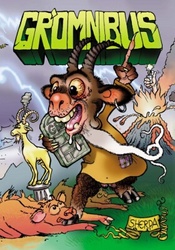One Edward “my surname is not a Microsoft trademark” Docx gets the opportunity in The Guardian today to moan about those horrid, horrid bestselling genre writers taking away readers that belong to proper literaty writers. Ho-hum. It’s nothing you haven’t seen before and done better, an insipid bit of literary trolling a cynical man might think was done to get the Guardian some hits and our Docx friend some publicity just in time for the publication of his next novel. Pointless to respond to it, to either defend genre writing or to show where he stacked the deck, that would just take him much more seriously than he deserves.
Remains just to note that the p.r. blurb for his latest work does make it sound awfully like a genre novel:
Dr Forle is a scientist living on a river station deep in the South American jungle. Founded by his mysterious mentor, Quinn, his is the last manned post before the impassable interior. Forle’s small band of colleagues are an international crew, working with locals to study the eerie forest glades – created by poison ants – that the Indians call ‘devil’s gardens’. When a strange canoe docks at the jetty one afternoon and offloads not just their usual supplies but an unannounced Colonel and a sinister Judge, life on the station is thrown into chaos. These men claim to be registering the local Indian tribes to vote. But on the night of their arrival, Forle witnesses a terrible act of torture. Unable to ignore what he has seen and yet unwilling to abandon his work, he is drawn deeper and deeper into a world of brutality and corruption: a small war involving remote tribes, the army, cocaine growers and even Sole, the half-Indian woman whom he had come to love. When one of his assistants is murdered, Forle is forced to abandon his life’s work and take sides. But what kind of a man is he? In the tradition of such classics as “The Heart of Darkness” and “The Lord of the Flies”, “The Devil’s Garden” is a contemporary and mesmeric study of power and corruption from one of our rising literary stars.
